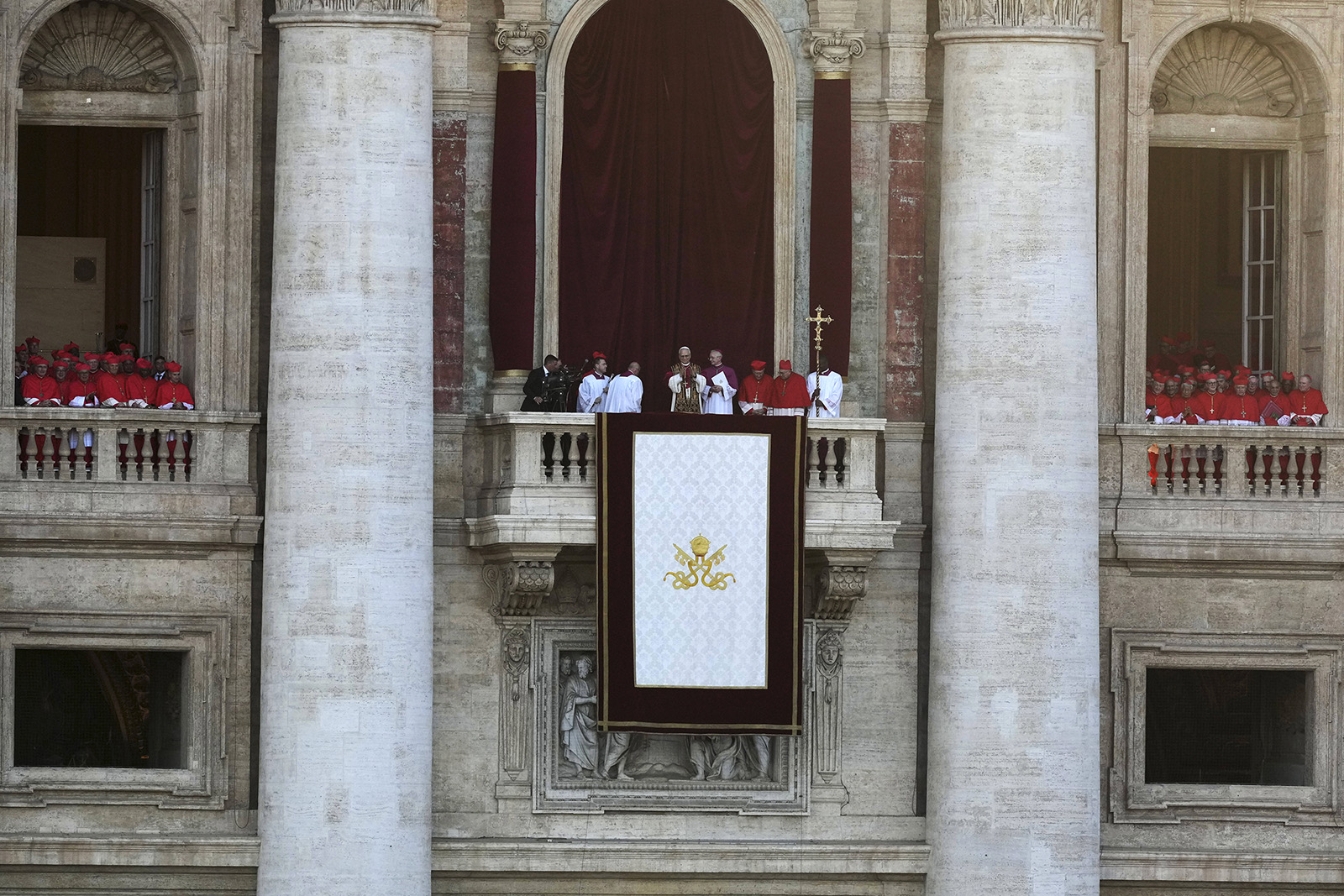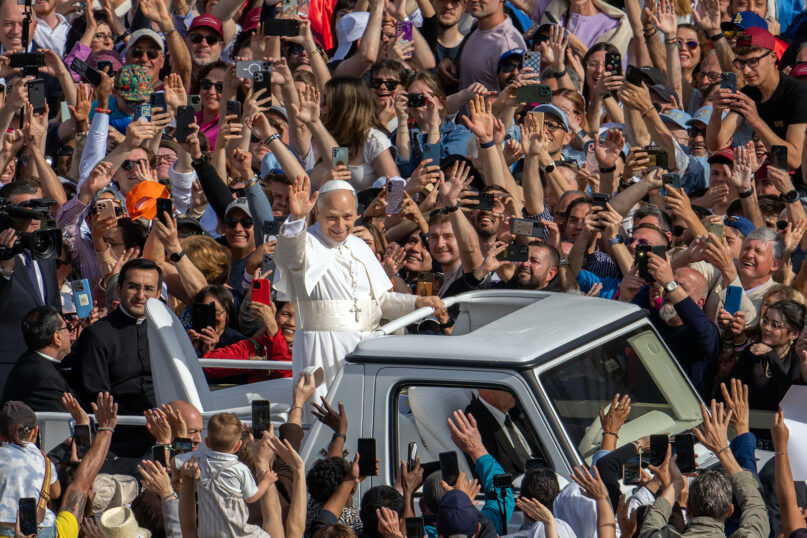
(RNS) — It was a moment we had been told never to expect: An American cardinal, Robert Prevost, stepped onto the balcony of St. Peter’s Basilica and greeted the faithful as Pope Leo XIV.
The reaction was swift and diverse. Surprise. Joy. Skepticism. And not because of his nationality alone, but because, for many Catholics, the announcement fell into a polarized narrative that has come to define Church life in recent decades. “Is he one of us?” “Is he one of them?”
That’s the real conflict — not between nations, but between visions and priorities. It is a divide centered on issues of life, freedom, sexuality, poverty, human dignity, justice, community and the meaning of true happiness. Mainstream media coverage recognizes that tension. And so does Pope Leo XIV.
His first words as pope made his position clear: “Peace be with you all!” And moments later, from the same balcony: “We have to be a Church that works together to build bridges and to keep our arms open, like this very piazza, welcoming.”
It wasn’t political. It was deeply evangelical.
As Roman pontiff, he comes as a bridge — and not just symbolically. His own life embodies tensions reconciled: as a former missionary in Peru and a canon lawyer; as a religious superior and a Vatican prefect; as a man who defends the unborn and decries economic injustice — he doesn’t demonize either side. He uplifts both sides, embracing common ground and respecting different views.
Some conservatives remain skeptical. Some progressives are buoyant. But the pope has made it clear: He is nobody’s mascot. He is Peter’s successor for all and for everyone. The Gospel doesn’t fit into our political categories.

Pope Leo XIV tours St. Peter’s Square on his popemobile prior to the inaugural Mass of his pontificate, Sunday, May 18, 2025, at the Vatican. (AP Photo/Domenico Stinellis)
Leo XIV chose his name not at random but to invoke the memory of Pope Leo XIII — the pontiff who saw the Industrial Revolution’s human cost and responded with “Rerum Novarum,” defending laborers while also warning against socialism. Leo XIII revived Thomism and deep Marian devotion but also inspired Catholic social action movements across the globe. He didn’t choose sides. He saw the whole.
Pope Leo XIV seems to share that vision. In his first speech to the College of Cardinals, he addressed one of the most pressing issues of our time: artificial intelligence. But his real concern wasn’t technology. It was humanity.
“In our own day,” he said, “the Church offers to everyone the treasury of her social teaching in response to another industrial revolution and to developments in the field of artificial intelligence that pose new challenges for the defense of human dignity, justice and labour.”
There is no mistaking it: Leo XIV speaks to our fragmentation. He is calling us away from tribalism and toward something older, deeper and more difficult: communion — the spiritual union of hearts.
The Catholic Church’s teaching on moral and social matters offers a coherent vision of human dignity and the common good that illuminates the path for all, regardless of time or culture. It calls for courageous defense, not because it aligns with any political ideology, but because it springs from truths about the human person that transcend partisan labels.
Neither conservative nor progressive, this teaching is rooted in the Gospel and serves as both a challenge and a gift to the modern world. Pope Leo XIV is inviting everyone to recognize each other in the light of Christ, avoiding the simplistic paradigm of the “two sides.”
In the words of his inaugural blessing: “God loves you all. And evil will not prevail.”
No sound bite will capture this papacy. But we’ve been given a clue. Leo XIV is building bridges — and asking us to cross them.
Yes, he is the successor of Francis. Yes, he evokes Leo XIII. But more than that, he is the successor of Peter.
And Peter, then as now, is called not to champion a party — but to point out the way toward Christ.
(Monsignor Thomas G. Bohlin is the vicar of Opus Dei for the United States and Canada. The views expressed in this column do not necessarily reflect those of Religion News Service.)
